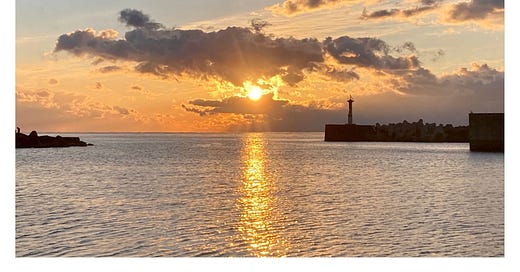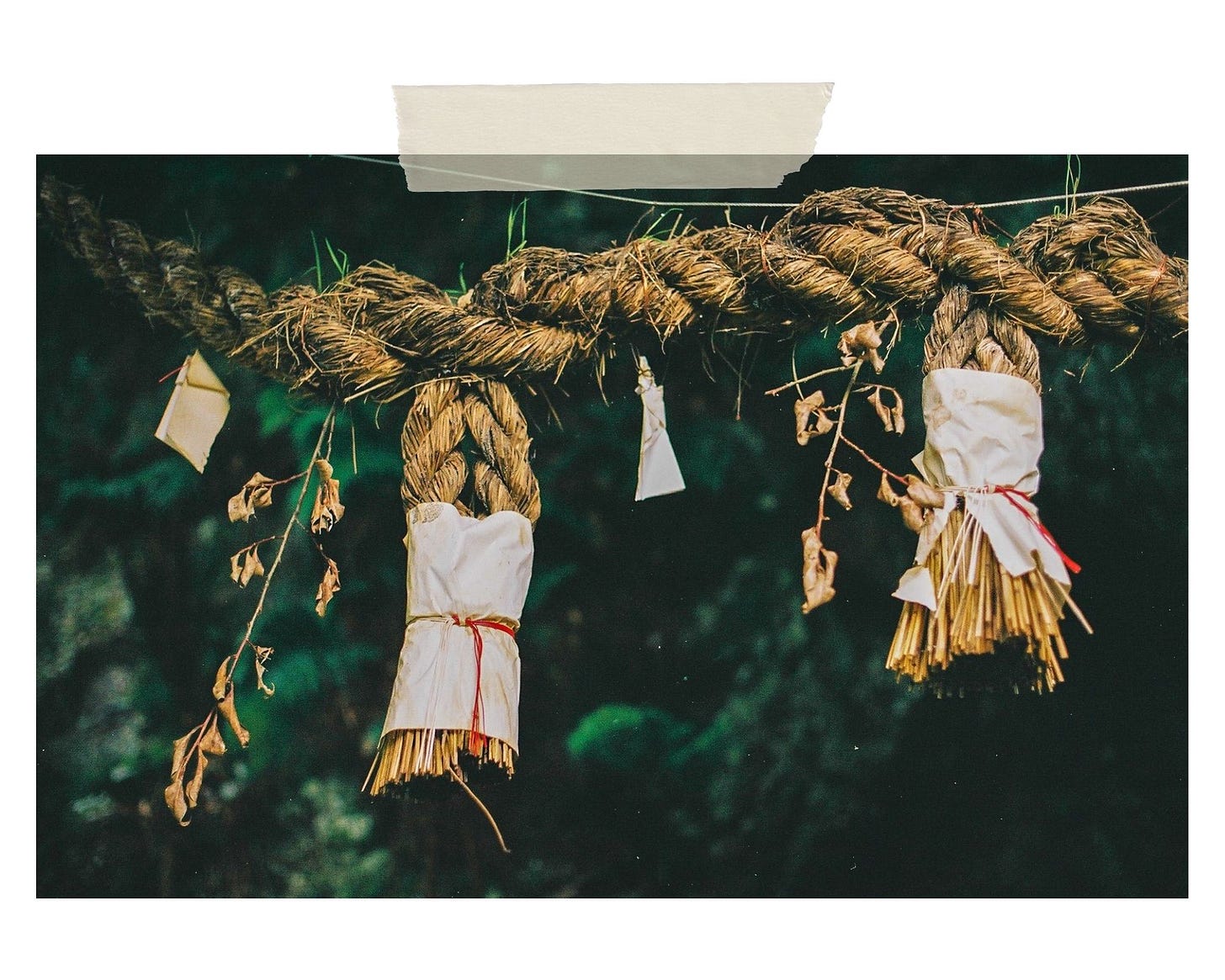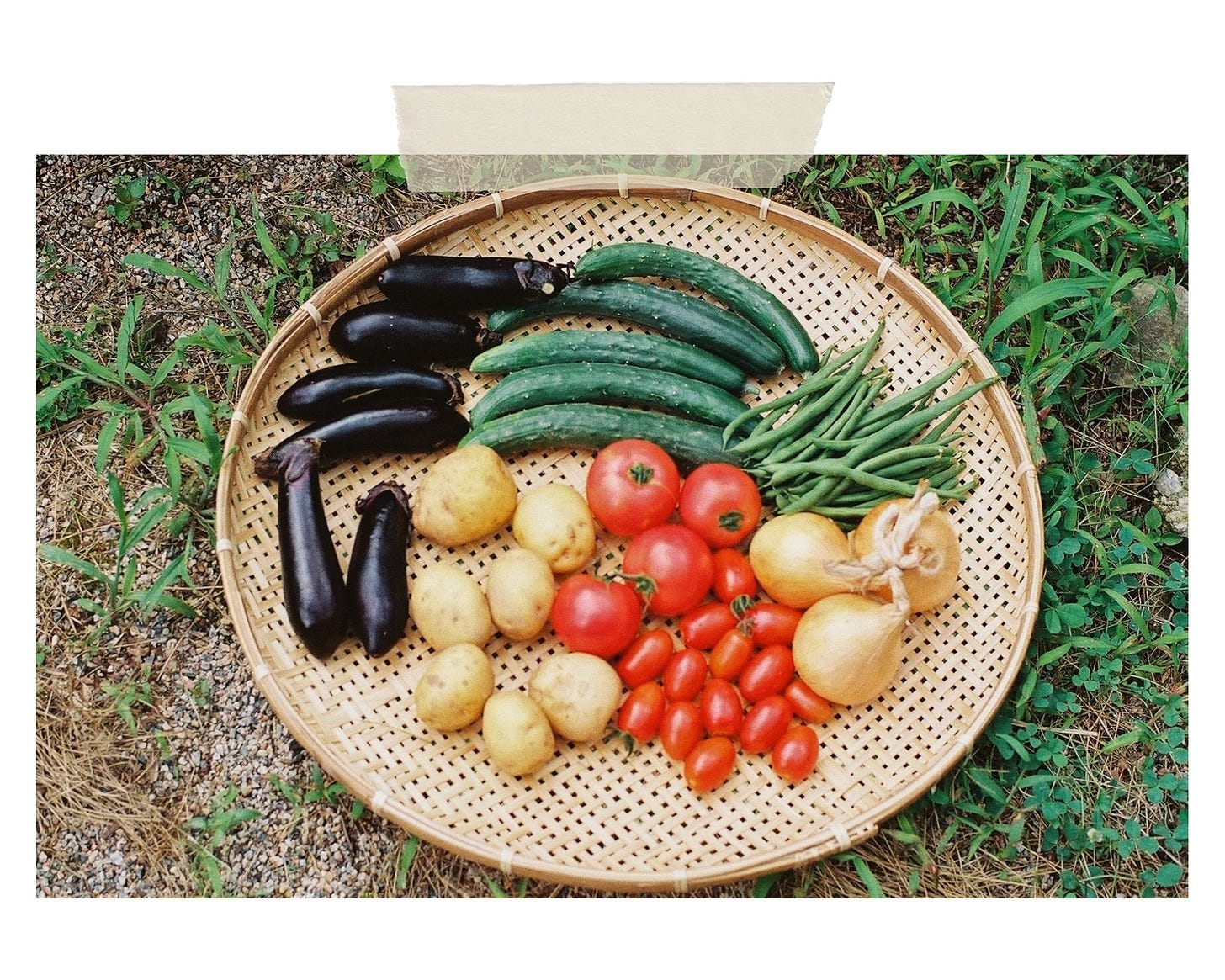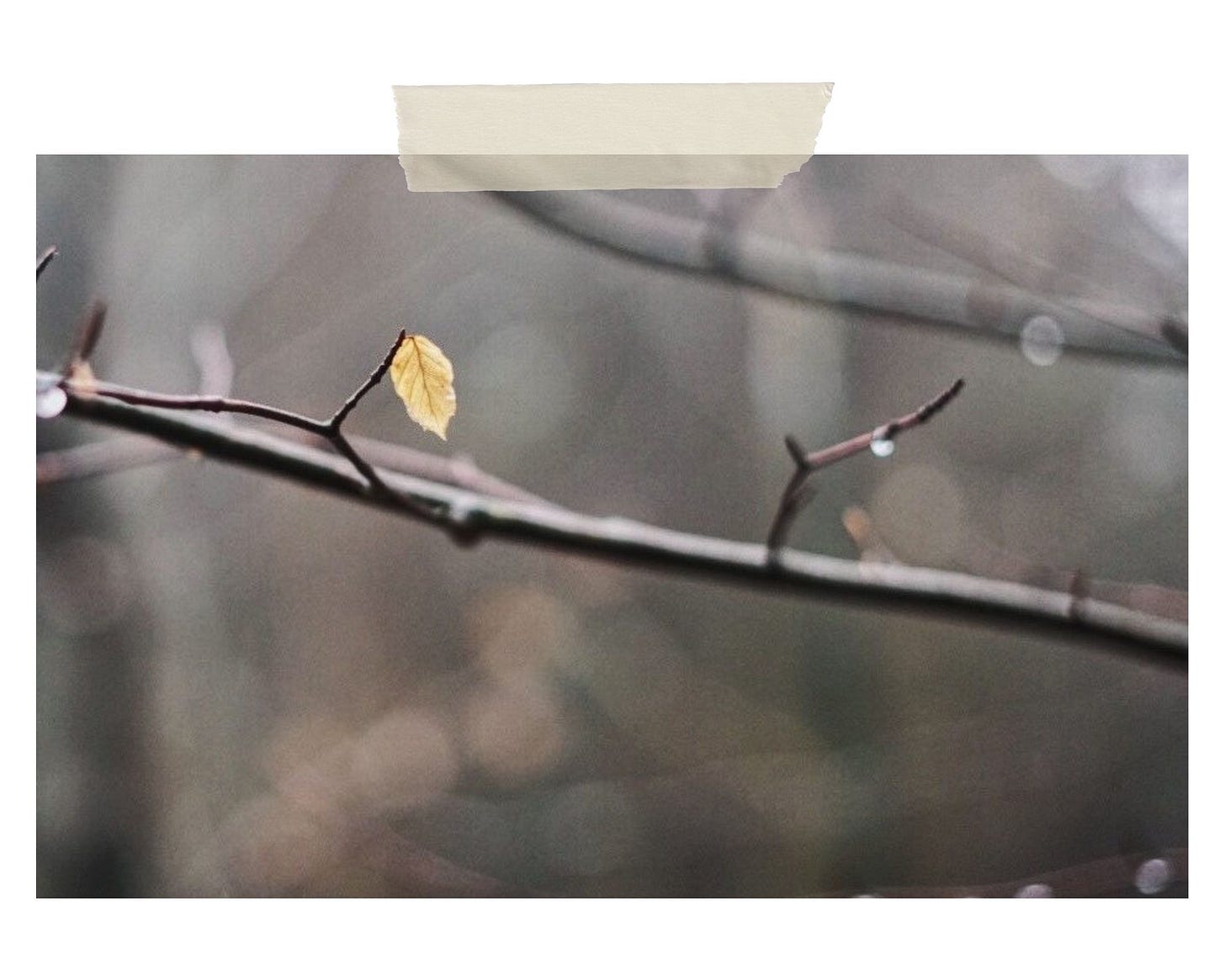Hello reader, thanks for being here! I’m Kana and this is Tending Gardens, which you can read about here. If you like it and want more like it in your inbox, consider subscribing.
Dear friend,
How was the past year for you? How’s the first week of 2022?
I thought I would write a newsletter around Christmas, then I tried to write around New Year’s, but finally, here I am finding myself finishing this post after the dust settles from what feels like always both the most chaotic and restful time of the year.
Of course, this time of year encourages us to take stock of the highs, lows, and moments of growth, setbacks, and transformations. 11 months blur by quickly and then suddenly halt with existential life questions: Am I living a life I’m truly proud of? What did I learn in the past year? Am I happy?
Though I don’t think any of these questions require answers, I do like the prompted introspection that the New Year nudges us into. I’m also rooted in the belief that every day can be an opportunity for resolution and growth. There’s no need to set a course for a year ahead or measure time in blocks of months and years.
A quote that has circled around recently:
“Western cultures believe we must be alive for a purpose. To work, to make money. Some Indigenous cultures believe we’re alive just as nature is alive: to be here, to be beautiful, and strange. We don’t need to achieve anything to be valid in our humaness.”
Unlike 2020, which was a year of endings and beginnings, leaving Bangladesh and moving to Japan, 2021 was a much steadier year for me being based in Japan. Last year on January 1st 2021, I was on the beach on the shores of a small coastal community called Hiwasa—a small town that is known for being the site of temple 23 on the Ohenro Pilgrimage around Shikoku Island.
Last New Year’s was the first time in my life I had spent New Year’s in Japan. Having long struggled to find a balance between my different cultural identities (Canadian, Japanese, Cantonese), it felt like a gift to be spending time celebrating and honouring one of the most important holidays in Japan. It wasn’t entirely a traditional celebration, I also danced with friends and had champagne at midnight. But after sipping sparking, I ate toshikoshi soba, or year-end soba, which is eaten for good luck. I visited a temple and saw the first sunrise of the New Year (hatsumode and hatsuhinode) the next morning. 2021 was settling into my Japanese culture, which was eye-opening, confronting, but mostly a beautiful learning experience.
Even with the backdrop of adapting to a new way of living in the face of the ongoing, neverending pandemic, 2021 was a beautiful year in Kamikatsu and I’m grateful for the support of my friends and family from afar. I had the joy to meet and connect with so many incredible people in Japan.
While everything in the news continues to be angst-inducing or energy-draining, I wanted to write about three lessons I’ve learned that maybe help remind you that everything will be okay. Here’s a handful of thoughts that are along those lines.
meaningful exchanges are far beyond monetary, abundance is for sharing
I’m still surprised and moved every time I get free vegetables from different people in my village. This lesson really comes down to the simple idea that when we have abundance, we should share that abundance with others. Gifts of daikon, mikan, fish, and pickled vegetables are (I realize) my love language.
I want to be in a place where I can also grow my own food and share that with others. I want to focus on being more generous with my time and resources with the intention to nurture my community.
Something that really surprised me this past year living in a small village was the importance of non-monetary exchanges and the joy of human interactions. We exist in systems built on capitalism and value understood by money. It’s truly wonderful to re-imagine a society based on sharing. I think at the heart of this thought is the value of community—one that thrives with exchanges of generosity. Community is a matter of generosity in so many ways.
transformations are slow and steady
Trying to completely change your life at once can feel overwhelming. Attention spread thinly over many different areas yields less lasting and long term changes. With a society that’s gripped with speed, productivity, and efficiency, it’s tempting to want to see quick change. I think intentionally focusing on a particular area that you wish to grow will be much more fruitful than aiming for a large overhaul.
I also think that sometimes we hold onto a stagnant sense of identity—one that’s not malleable and doesn’t give room for change. Allowing ourselves the space for new habits, ideas, perspectives, and ways of being can help us adapt to the ups and downs. A flexible identity is a wonderful thing and there’s no need to stay the same. I have a habit of clinging onto past versions of myself, both good and bad, which doesn’t let me be the best version of myself. I’m embracing the affirmation to have the courage to and allow myself to transform, even if it’s slow.
I think that words like ‘transformation’ or ‘change’ can sometimes feel dramatic or heavy, but we don’t need to fall to the bottom to start the process of transformation. It can be much more quiet, nuanced, and subtle. It can start with a realization that changing a certain aspect of our life could free us from certain anxieties, stress or sadness.
harmony of theory and practice
As I was crossing the New Year, I was (re)reading a book called The Art of Loving by Erich Fromm. As the title (obviously) indicates, it’s a book about love. The book is filled with insight about why and how we love, but in literally the first pages, Fromm talks about how any art (in the book’s case, love) demands a mastery of both theory and practice. That floored me. I realized that in many things in my life I lean heavy on theory or heavy on practice but I couldn’t think of many things that genuinely balanced both.
Yoga, for example, is something I’ve really only done in practice for 10 years. I want to be more mindful of the union of the theory of practice. I suppose that’s what a lot of people consider mastery, but for me, it’s a little less grandeur and a bit more of a humble attempt to realize the benefits of creating a union between the why and how. I think if you truly have a desire to learn something, there’s an excitement in diving deep into theory and its application in practice.
the joy of creating and learning
My last point carries me into this point, which is 2021 taught me about the joy of creating and learning. I really want to carry this energy forward to continue to challenge myself to create and keep learning.
A couple of things I’ve created/learned this year that I’ve written about:
starting INOW, a company focused on education and sustainable tourism in Kamikatsu to share the wisdom and lifestyle in the countryside
creating awa bancha tea, which is a fermented tea special to this region of Japan
making miso by hand with my friend’s grandma and planting and harvesting rice
learning how to ride a road bicycle (and my first 100+km!)
I think the gift of being in one place and allowed me to try and learn these new skills. The next step would be to continue these practices and commit to deepening each craft. As a beginner, I think there’s both a nervousness that demands seriousness and recognizes the potential challenges in the road ahead and excitement to grow past limits you consciousness or unconsciously held for yourself.

intensions will guide me and affirmations will carry me through hard moments
I’m setting different intentions for myself this year. I prefer the word intentions to goals since there’s something that feels a bit inflexible or rigid about the word goal. Maybe it’s this feeling that we’re not successful until we meet a goal, but I think (as cliche as it is) it’s really not always about the end result. While goals are future-oriented, intentions are a way to stay present—intentions are lived. I think intentions are what give us direction and affirmations keep us rooted. For me, both serve as practical ways of being mindful about how I spend my time.
I am choosing growth over perfection.
I am making good decisions that I trust.
I will take care of my body through rest, mindfulness, and exercise.
I celebrate progress and small wins.
I am excited to try new things.
I will not fear commitment.
I will cultivate gratitude daily.
I am learning to be more open, trusting, and ask for help.
May you lean into the whispers and have the courage to trust your intuition.
I’m excited for what is yet to come!
This was a longer than intended post, but thank you so much for reading.
Oh and this newsletter turns 1 soon! Thank you for following along this journey where I’ve given myself so much freedom to write whatever’s on my mind. Apparently, that’s interesting enough for a handful of loving people to keep opening up the e-mail whenever it pops up, thank you. It means a lot.
There will be more rural, countryside discoveries and musings in the coming year!
Be gentle as winter continues to roll through the next months. These colder and darker days can be hard on our minds and body. Seek the warmness and light in these times and take care of yourself.
With love,
Kana
I’d love for you to think of me as your penpal—sharing a note from a tiny village in Japan. With Tending Gardens, I want to bring you a small joy in the form of a newsletter. If you like it and want more like it in your inbox, consider subscribing.










So nice Lauren, wish you all the best always, will love to read your thoughts more throw your journey.
Take care ❤️
Happy almost one year anniversary!